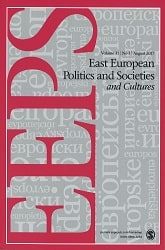Gender in the Post-Socialist Transition: The Abortion Debate in Hungary
Gender in the Post-Socialist Transition: The Abortion Debate in Hungary
Author(s): Susan GalSubject(s): Gender Studies, Human Rights and Humanitarian Law, Civil Society, Politics and society, Social differentiation, Social Theory, Sociobiology, Post-Communist Transformation
Published by: SAGE Publications Ltd
Keywords: Gender studies; post-socialist transition; abortion debate; Hungary; Eastern Europe; civil rights; gender equality;
Summary/Abstract: Historical periods have different meanings and implications when seen from the vantage point of women rather than men. For instance, feminist interpretations of the French Revolution show how the social theories, cultural constructions, and ideologies that inspired and guided events were "emancipatory" for non-aristocratic men, licensing their greater participation in public life, but the very same theories. Introduced a new gendering of politics that worked to exclude women of the popular classes and women of the aristocracy who had been powerful in the Old Regime. Similarly, while the Italian Renaissance is usually seen as a time of general expansion in many such cultural spheres as knowledge, artistic expression, and novel forms of social relations, the very changes which brought these for men resulted in a contraction of social and personal options for women. [...]
Journal: East European Politics and Societies
- Issue Year: 08/1994
- Issue No: 02
- Page Range: 256-286
- Page Count: 31
- Language: English
- Content File-PDF

